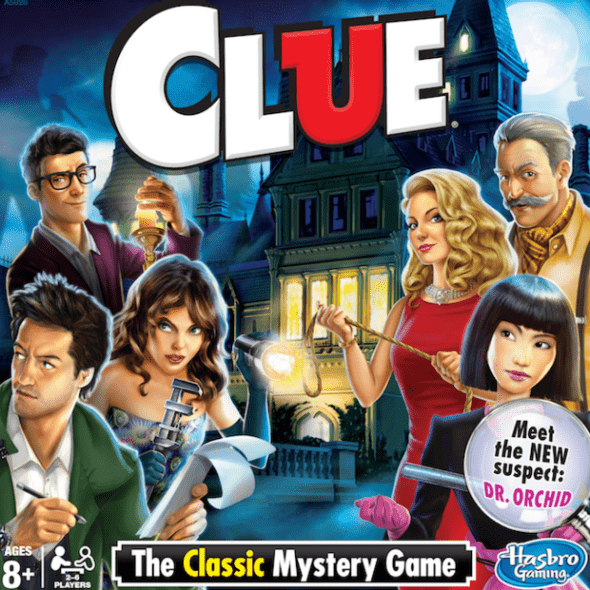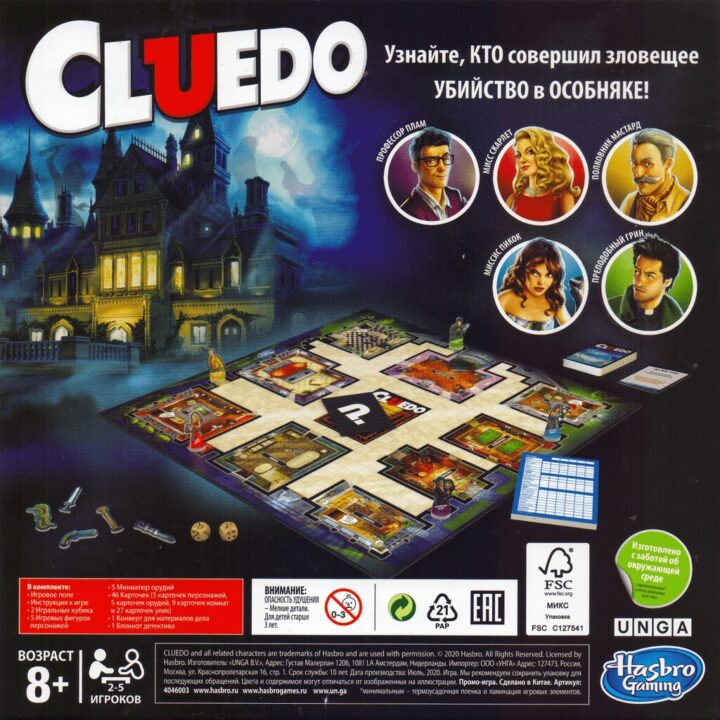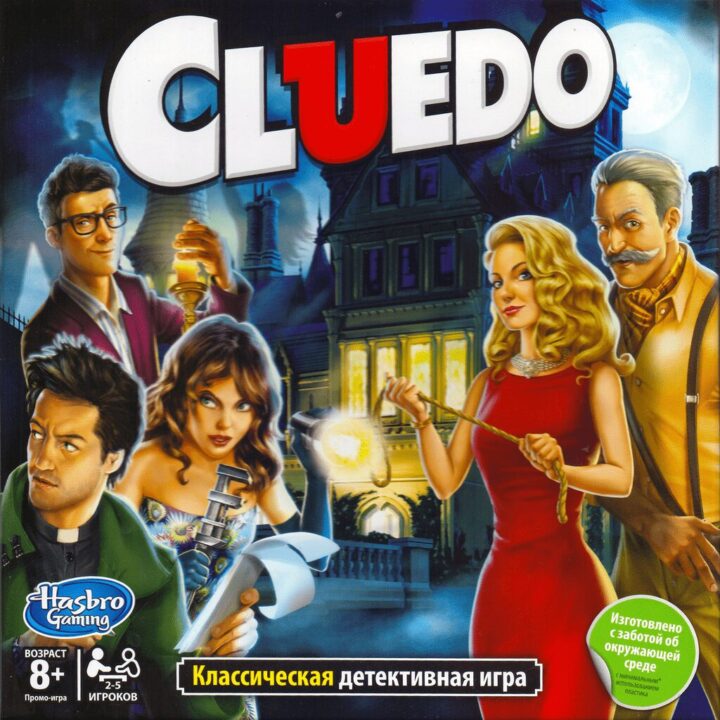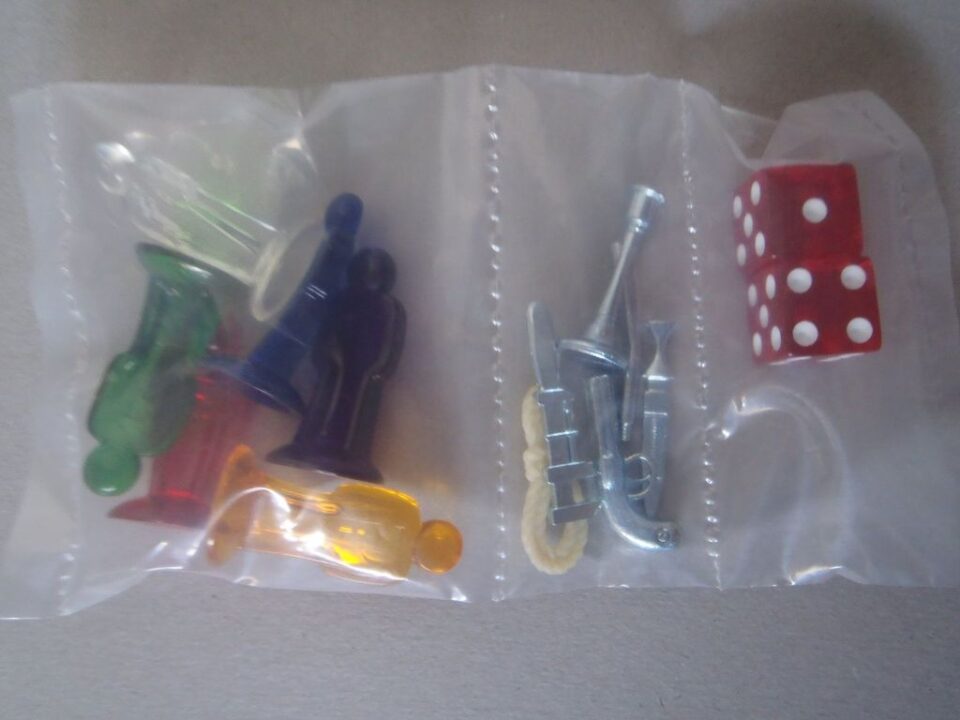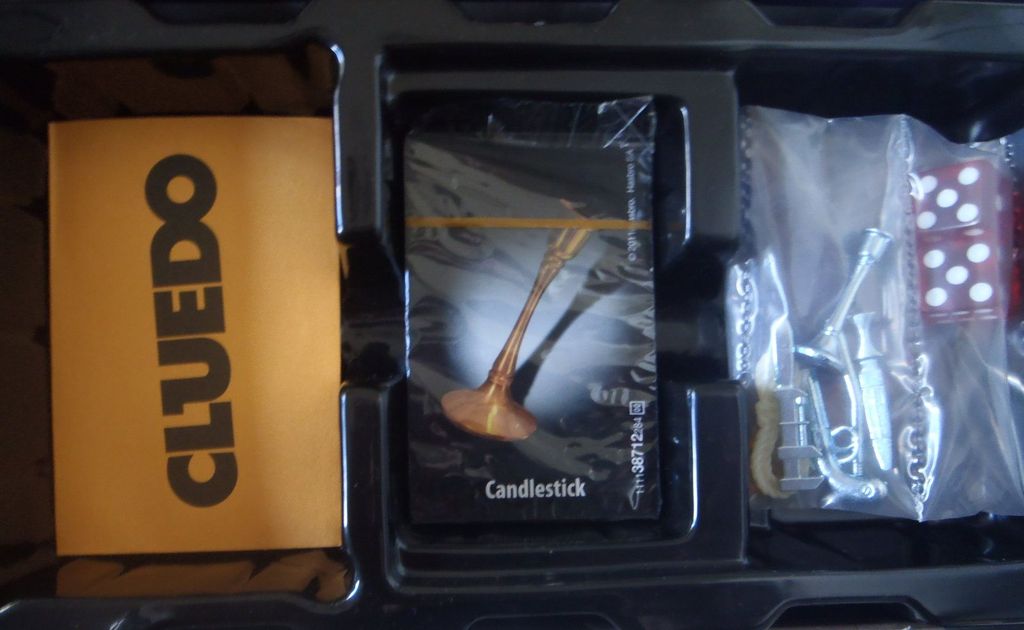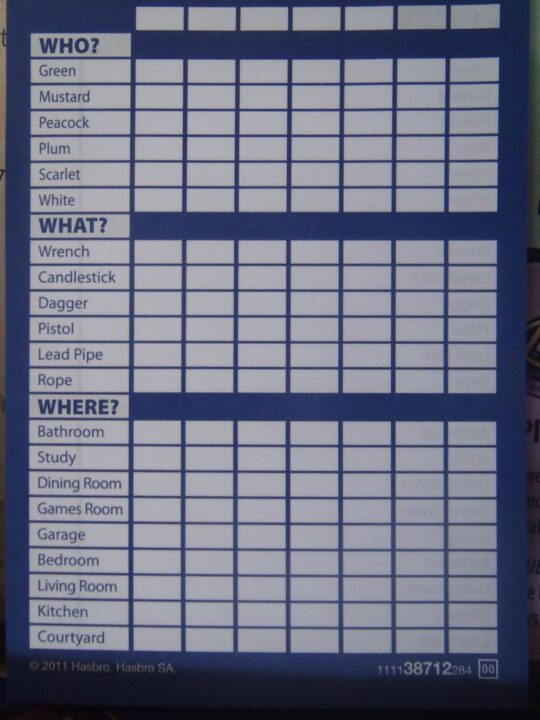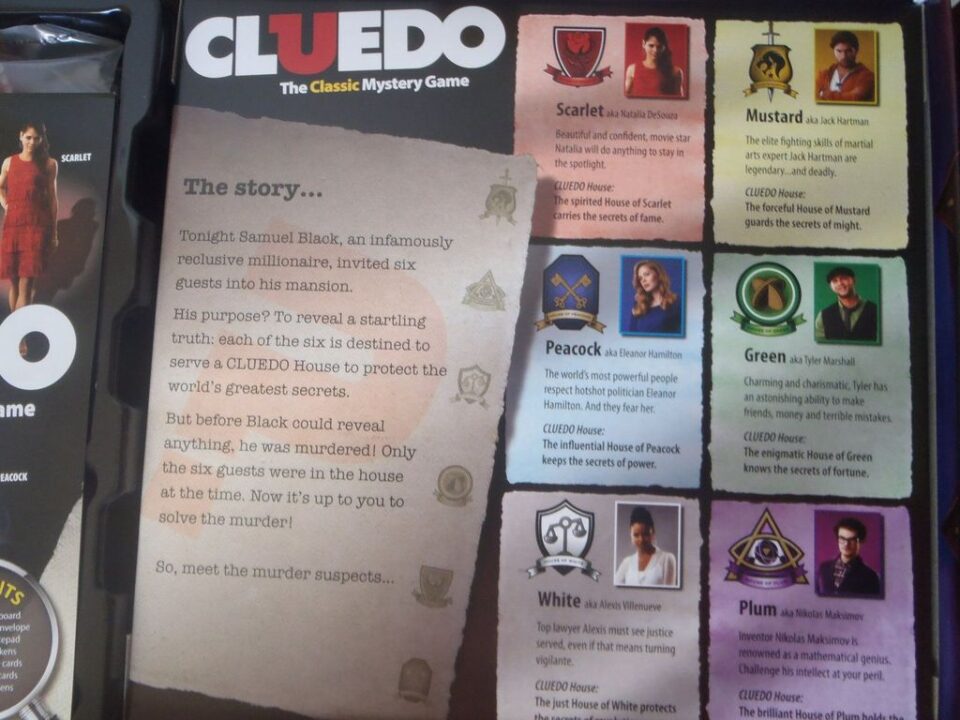Alright, let’s talk about a mystery classic. This is my review of everybody’s favorite noisy family drama in a box—yes, the one where Colonel Mustard gets more hate than anyone in gaming history. I’ve gathered my finest detective friends (one of whom thinks a candlestick is the perfect murder weapon for a game) and put this legendary board game through its paces. Was it gripping? Was it unfair? Did my brother accuse himself by mistake—again? You’re about to find out just how slippery the truth can be in this timeless whodunit.
How It Plays
Setting Up
First, grab your friends or enemies—anyone you want to accuse dramatically. Put the game board on the table. Shuffle the suspect, weapon, and room cards. Secretly place one of each in the case file envelope. Deal out the rest of the cards. Everyone picks a character and plops their playing piece in its starting spot. Place the weapons in random rooms. Grab your detective notebook and try not to spill coffee on it. You’re set!
Gameplay
Take turns rolling the dice, moving around the mansion, and snooping into rooms. Whenever you enter a room, you can make a suggestion—accusing any suspect of using any weapon in that room. ‘I think Colonel Mustard did it with the wrench in the kitchen!’ The player to your left tries to prove you wrong by showing you a card you named. Keep notes, watch poker faces, and pretend you know what you’re doing even when you’re lost (like me half the time).
Winning the Game
When you think you’ve cracked the case, make a formal accusation. Announce your suspect, weapon, and room. Then check the secret envelope. If you’re right, you win! If not, you’re out of the running, and everyone else gets to keep playing while you sip your drink and swear revenge on whoever tricked you.
Want to know more? Read our extensive strategy guide for Clue.
Gameplay Mechanics and Deduction: Mastering the Art of Accusation in Clue
Playing Clue is like being tossed into a murder mystery party where everyone suddenly becomes the world’s worst actor, but shockingly good detective—except for Jim who confidently accuses Mrs. White every single game without any evidence. I always laugh at Jim, but then he sometimes gets it right by pure luck, and that burns my toast.
The game kicks off with three secret cards locked in the crime envelope. These cards tell you the who, the where, and the what of poor Dr. Boddy’s demise. Each player gets a handful of the remaining cards, which is like getting a packet of clues covered in coffee stains and ketchup. You roam the house, room by suspicious room, tossing out wild accusations. “Was it Colonel Mustard, in the kitchen, with the candlestick?” If someone has any of those cards, they show you one. You try not to look too happy when you see it because your friends are always watching.
Now, here comes the fun—deduction! You scribble, you cross off suspects, you pretend to be Sherlock Holmes while really just guessing a lot. (I once wrote a suspect’s name so many times I started spelling it ‘Cornel Musterd.’) But beware—the game loves teasing you. Sometimes you chase a hunch for three rounds, just to realize you misread your own notes. Clue has a little luck in who gets what cards, but most of the time, those who pay the most attention to the answers win.
So, if you like old-school deduction and a bit of notebook doodling, Clue has you covered. Next, let me tell you about players and the wild chaos they bring to the mansion…
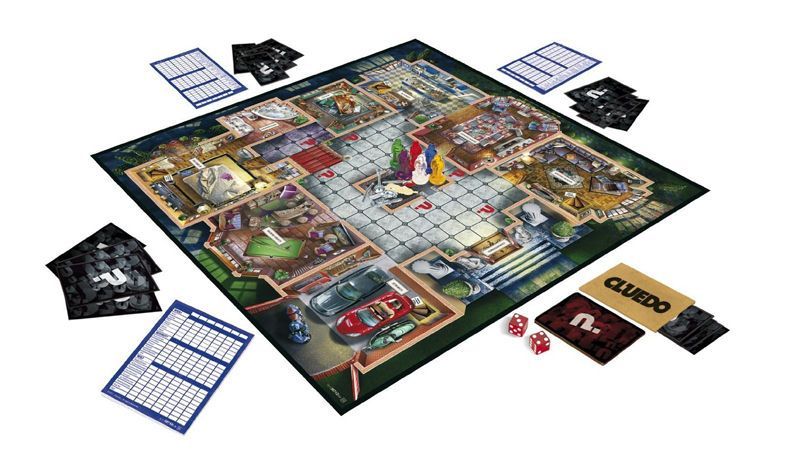
Player Interaction and Engagement in Clue
Oh boy, Clue practically forces you to pay attention to your fellow players. From the moment someone makes an accusation about Professor Plum in the Library with the Candlestick, you can feel the tension rise. It’s like everyone suddenly becomes Sherlock Holmes, but with worse facial hair.
One of my favorite parts about Clue is the way you have to keep chatting and reading each other. My friend Carla, who claims she can spot a liar from across the street, stared at me so hard during a game I started to doubt my middle name. She still thought I was hiding the Lead Pipe, though. There’s a lot of bluffing when someone asks about a card, and even more bluffing when you squirm to avoid giving away your secret cards.
Clue’s setup means you pay attention even when it isn’t your turn. You watch who asks what, who shows what card, and who is suddenly very quiet when someone names the Kitchen. It’s a social game. The good kind, not the one where Aunt Beth tells you about her mole removal. Even the quietest player at the table gets drawn in, because every clue matters. By the third round, I’ve usually eaten my body weight in chips, but I’m still decoding everyone else’s poker faces.
If you love a board game where everyone is involved and faking confidence, Clue nails it. Just don’t be surprised if you start making suspicious eye contact next time someone says the word “revolver.” Speaking of suspicious things—let’s talk about how much luck is involved, and how often it makes me want to flip the board.

Luck vs Skill: Who’s Really Solving the Crime in Clue?
I’ve played Clue so many times, I swear I could find a candlestick in my sleep. And yet, every time I whip out my detective notepad and sharpen my pencil, something happens that reminds me: Clue is not all about brilliant deduction. It’s also about pure, unfiltered luck. Now, I’m not saying your Aunt Mildred, who’s convinced Colonel Mustard is always guilty, is just lucky. But honestly, sometimes even she stumbles on the answer with a lucky guess.
Skill in Clue comes down to paying attention, making good notes, and keeping a poker face when someone suggests you’re hiding the lead pipe. But, let’s be honest, you can lose just because you sat to the left of the person with half the solution in their hand. Or win because you got to ask first and someone coughed at the word ”revolver.” The card distribution at the start can make or break you. If you’re dealt all the rooms, half your detective work is done before you even accuse anyone of being a maniac in the library.
Is this bad? Well, if you like games where skill is king, you might give Clue a side-eye. If you like unpredictable madness, you’ll love it—until you lose three times in a row. I always wish there was a tiny bit less luck, but hey, sometimes you just need to embrace the chaos!
Can Clue keep you coming back for more, or will it gather dust after three plays? Spoiler: The next section is all about replay value and variety!
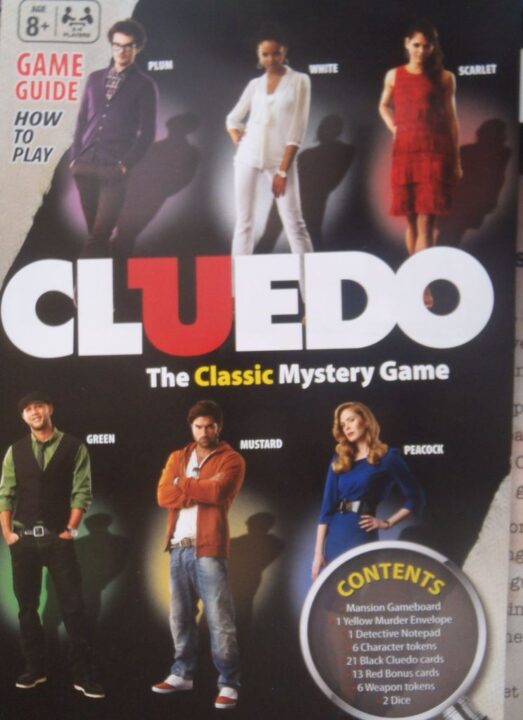
Replay Value and Variety: Can Clue Keep You Guessing?
Alright, let’s talk about something that every board game owner worries about: does this box of cardboard and plastic actually last, or will it just gather dust next to the fondue set? Now, Clue is one of those classic games that’s been around since your grandma tried to pin it on Colonel Mustard for the third time in a row. So, does it get stale, or does it keep you coming back for more?
After way too many rounds with my friends, I can say that Clue does bring some replay value to the table – but it’s not endless. The core thrill of Clue is all about the deduction dance. Every round throws out a brand new solution, and unless you crack the case in two turns (someone always gets lucky – and smug), you actually have to sleuth your way through a sea of accusations. Of course, it helps that you can try different tactics. Sometimes I act innocent, sometimes I try chaos. Sometimes I just pretend I have absolutely no idea, which is not hard.
But since the suspects, weapons, and rooms are always the same, veteran players start to spot patterns. After a while, my usual crew began making accusations faster, and the air of mystery faded a bit. There are only so many ways Professor Plum can bludgeon someone with a candlestick, you know?
If you love light deduction with a bit of roleplay and don’t mind things feeling familiar every now and then, Clue is a solid pick. But if you crave wild variety, you may want to mix it up after a while. My verdict: recommended, but maybe not for every single game night!
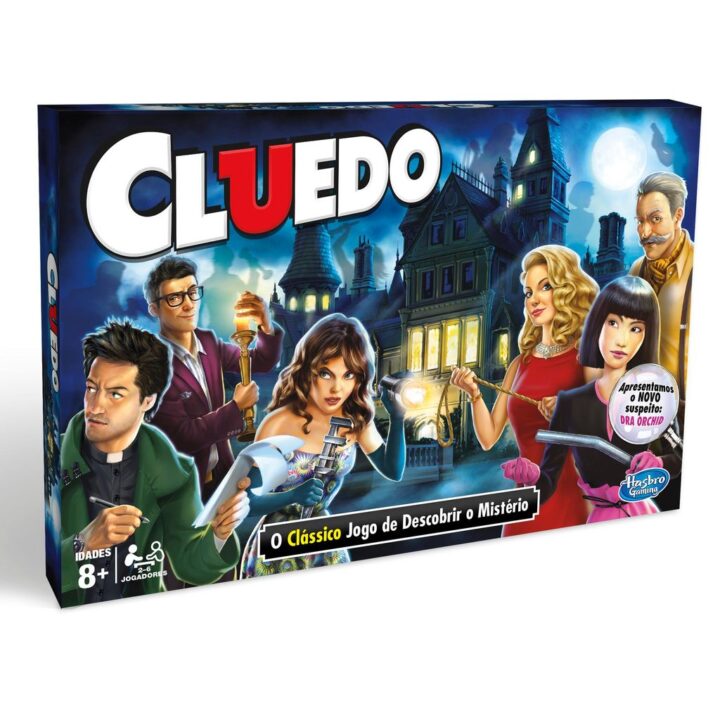
Conclusion
So there you have it—my official review of Clue, a game that manages to turn every family member into a suspicious detective and maybe even start some passive-aggressive accusations over dinner. Clue does a good job of scratching that mystery itch, especially if you like keeping secrets or just making wild guesses and calling it ‘deduction.’ It’s fun for groups, and there are enough laughs when someone confidently accuses the wrong person. But, luck plays a bigger part than I’d like, and repeated plays can start to feel a bit samey. Still, it’s a classic for a reason, and it holds up if you’re in the mood for some lighthearted sleuthing. Just don’t blame me when Aunt Linda accuses you of murder in the conservatory. That wraps up my review. Thanks for reading, and may your clues always be correct!

